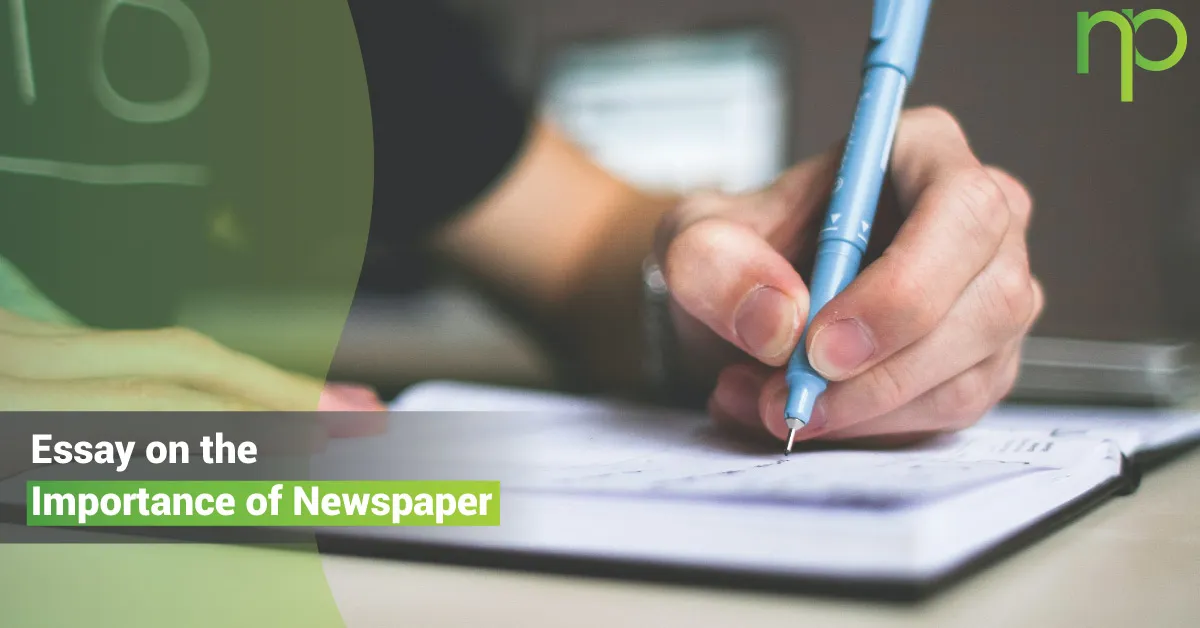
- December 6, 2023
- ubaidah khan
- 0
In a period dominated by digital media, the significance of newspapers remains loyal, serving as a foundation of information dispersion and societal mindfulness. This essay explores the multifaceted significance of newspapers, probing into their instructional power, educational value, part in shaping public opinion, community connection, watchdog function, cultural signification, economic impact, adaption to the digital period, and their part as libraries of history.
Instructional Power of journals:
Newspapers are the bedrock of timely and dependable news delivery. In an age of information load, newspapers stand out as lights of journalistic integrity, furnishing compendiums with curated content that spans original, public, and international news. They play a pivotal part in fostering an informed populace by offering a different array of stories and perspectives.
Educational Value of Newspapers:
Beyond the headings, newspapers act as inestimable educational coffers. They expand readers’ knowledge on a variety of matters, from politics and wisdom to culture and sports. Engaging with journals enhances critical thinking expertise, encouraging compendiums to dissect and interpret information, and fostering a more intellectually curious society.
Part in Shaping Public Opinion:
Newspapers apply significant influence in shaping public opinion. Through editorial choices and nuanced reporting, they contribute to the conformation of societal perspectives on issues ranging from politics to social justice. The different perspectives presented in journals offer compendiums of a well-rounded understanding of complex subjects.
Community Connection through Local News:
Original news serves as the lifeblood of communities, fostering mindfulness and a sense of belonging. Newspapers play a vital part in pressing original events, issues, and achievements, creating a participated narrative that connects residents. This community-acquainted reporting strengthens social bonds and communal engagement.
Newspapers as Defenders of Democracy:
A pivotal function of journals is acting as tools of the republic. Investigative journalism holds those in power responsible, uncovering corruption, exposing wrongdoing, and icing translucency. Journals serve as a check and balance in society, contributing to the health of popular institutions.
Cultural Significance and Crafts Coverage:
New newspapers contribute to cultural mindfulness by featuring papers on art, literature, and entertainment. Coverage of artistic events and cultural trials helps compendiums connect with their cultural heritage and discover new forms of expression. Journals play a part in shaping and reflecting cultural trends.
The Tangibility of Newspapers:
The palpable experience of holding a physical review adds to its appeal. The act of flipping through runners, the rustling sound, and the distinctive essay aroma contribute to a sensitive experience that digital platforms cannot replicate. This palpable engagement fosters a unique connection between compendiums and their news source.
Economic Impact of Newspapers:
Newspapers have a substantial economic impact on original communities. They support original husbandry through job creation in journalism and related diligence. Also, advertising profit generated by journals contributes to the sustainability of both the media assiduity and original businesses.
Adaption to the Digital Era:
Feting the changing media geography, newspapers have transitioned to online platforms. This shift allows them to reach a broader followership and acclimatize to evolving anthology preferences. While presenting new openings, the digital age also poses challenges in terms of profit models and maintaining editorial norms.
The Trouble of Fake News and Misinformation:
The frequency of fake news and misinformation in the digital space underscores the significance of traditional media, including newspapers. Rigorous fact-checking and adherence to journalistic norms are pivotal for journals to fight the spread of false information and maintain public trust.
Newspapers as Libraries of History:
Newspapers serve as inestimable libraries of history, establishing significant events, mileposts, and artistic shifts. The literal record saved in journals provides unborn generations with perceptivity into the zeitgeist of different ages, assuring the durability of collaborative memory.
Environmental Enterprises and Sustainability:
The environmental impact of print newspapers has raised enterprises’ about sustainability. As society becomes further-conscious, journals are exploring sustainable practices, similar to responsible sourcing of accouterments and eco-friendly printing styles, to reduce their carbon footmark.
Challenges and Criticisms Faced by Newspapers:
Newspapers face challenges similar to the declining readership, rotation, and the need to navigate geography where digital druthers pullulate. Maintaining public trust and credibility is pivotal amidst exams of media bias and sensationalism.
Conclusion:
In conclusion, newspapers play a necessary part in shaping the information geography, fostering community ties, and contributing to the popular fabric of society. Despite the challenges posed by the digital period, newspapers remain flexible, conforming to change while upholding their core values. As we navigate the complications of ultramodern media, the enduring significance of journals is a testament to their irreplaceable part in societal converse and understanding.